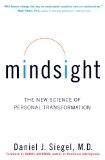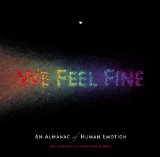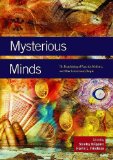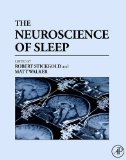new book – ‘Mindsight: The New Science of Personal Transformation’
January 12, 2010
Mindsight: The New Science of Personal Transformation by Dr Daniel J Siegel (Bantam, 2010)
Product description from the publisher:
From a pioneer in the field of mental health comes a groundbreaking book on the healing power of “mindsight,” the potent skill that is the basis for both emotional and social intelligence. Mindsight allows you to make positive changes in your brain–and in your life.
• Is there a memory that torments you, or an irrational fear you can’ t shake?
• Do you sometimes become unreasonably angry or upset and find it hard to calm down?
• Do you ever wonder why you can’t stop behaving the way you do, no matter how hard you try?
• Are you and your child (or parent, partner, or boss) locked in a seemingly inevitable pattern of conflict?What if you could escape traps like these and live a fuller, richer, happier life? This isn’t mere speculation but the result of twenty-five years of careful hands-on clinical work by Daniel J. Siegel, M.D. A Harvard-trained physician, Dr. Siegel is one of the revolutionary global innovators in the integration of brain science into the practice of psychotherapy. Using case histories from his practice, he shows how, by following the proper steps, nearly everyone can learn how to focus their attention on the internal world of the mind in a way that will literally change the wiring and architecture of their brain.
Through his synthesis of a broad range of scientific research with applications to everyday life, Dr. Siegel has developed novel approaches that have helped hundreds of patients heal themselves from painful events in the past and liberate themselves from obstacles blocking their happiness in the present. And now he has written the first book that will help all of us understand the potential we have to create our own lives. Showing us mindsight in action, Dr. Siegel describes
• a sixteen-year-old boy with bipolar disorder who uses meditation and other techniques instead of drugs to calm the emotional storms that made him suicidal
• a woman paralyzed by anxiety, who uses mindsight to discover, in an unconscious memory of a childhood accident, the source of her dread
• a physician–the author himself–who pays attention to his intuition, which he experiences as a “vague, uneasy feeling in my belly, a gnawing restlessness in my heart and my gut,” and tracks down a patient who could have gone deaf because of an inaccurately written prescription for an ear infection
• a twelve-year-old girl with OCD who learns a meditation that is “like watching myself from outside myself” and, using a form of internal dialogue, is able to stop the compulsive behaviors that have been tormenting herThese and many other extraordinary stories illustrate how mindsight can help us master our emotions, heal our relationships, and reach our fullest potential.
A book as inspiring as it is informative, as practical as it is profound, Mindsight offers exciting new proof that we aren’t hardwired to behave in certain ways, but instead have the ability to harness the power of our minds to resculpt the neural pathways of our brains in ways that will be life-transforming.
See also: Author’s website & a Google talk from last April:






